School of Social Work News
Pages
 Ed-Dee Williams Successfully Defends Dissertation
Ed-Dee Williams Successfully Defends DissertationEd-Dee Williams, Joint Doctoral Program in Social Work and Sociology, has successfully defended his dissertation entitled, “Black Boys Mental Health Help-Seeking: Exploring Perceptions, Barriers and Social Processes.” His committee consisted of Jamie Mitchell and Alford A. Young, Jr. (co-chairs), David Córdova and Renee Anspach.
Williams will join the University of Michigan School of Social Work Level Up: Employment Skills Simulation Lab as a postdoctoral fellow this August. Williams will use his expertise on the mental health of Black youth to support two federally funded studies that are focused on autism, as well as engage in an intensive training program to lead randomized controlled trials.The fellowship will also support Williams to develop a new technology-based intervention to enhance the conversational help-seeking skills for Black autistic youth experiencing depression.
- July 27, 2021
- TIPPS — Trauma-Informed Program and Practices for Schools — Unveils New Website
TIPPS — The School of Social Work’s Trauma-Informed Program and Practices for Schools — has launched a new website. Learn more about how TIPPS translates research into strategies to help students develop their potential and create safe, nurturing and inclusive learning environments. Professor Todd Herrenkohl, TIPP’s director and principal investigator, leads an interdisciplinary team of faculty, students and community partners.
- July 22, 2021
- Learn more »
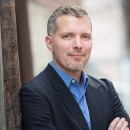 Luke Shaefer Discusses New Monthly Child Tax Credit
Luke Shaefer Discusses New Monthly Child Tax CreditProfessor Luke Shaefer spoke with the New York Times about how the new monthly child tax credit could increase economic stability for families. "When we load up so much of our aid in an annual big refund, it means so many of our families are going into the red by the end of the year," Professor Shaefer said. "We used to think about poverty in the United States as static - your income is below the poverty line - but people's lives are very volatile."
- July 19, 2021
- Learn more »
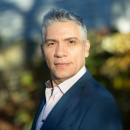 Rogério Meireles Pinto Spoke with Marie Claire Brazil about the Importance of the Stonewall Riots
Rogério Meireles Pinto Spoke with Marie Claire Brazil about the Importance of the Stonewall RiotsProfessor Rogério Meireles Pinto spoke with Marie Claire Brazil about the importance of the Stonewall riots in terms of current LGBTQIA2+ rights and aspirations. "The relationships between the different groups that comprise LGBTQIA2+ have always been a little uneasy," said Pinto." To the extent that there was a ‘gay movement' in early 1969, that movement wasn't centered in bars like Stonewall. For the most part it was middle class and socially conservative - nicely dressed young men and women marching peacefully, if at all. There were always exceptions, but Stonewall was the first time that any of those represented in what we today call LGBTQIA2+ pushed back against the police and government visibly and forcefully."
- July 19, 2021
- Learn more »
- Social Justice in Architecture: Trauma-informed Built Environment
Joint PhD students Sunghyun Hong and Irene Routte were invited to give the presentation, Social Justice in Architecture: Trauma-informed Built Environment, to employees and leadership at Quinn Evans Architects' four offices. "Irene and I were able to translate our research work and disseminate theories into digestible and applicable pieces for professionals outside of academia," says Hong. "It was a great opportunity to work with community members with whom social workers may not traditionally have worked, yet have immense overlaps, particularly in attention to the importance of macro work."
- July 16, 2021
- Cristina Bares Receives Council of Social Work Education Award
Associate Professor Cristina Bares has received an award from the Council of Social Work Education's Katherine A. Kendall Institute for International Social Work Education. The award will fund the development of a new course in the Global Social Work Pathway, which will prepare MSW students to work in a global environment by engaging with instructors from multiple institutions — particularly institutions from the Global South. Students will also develop anti-racist and decolonizing skills through intergroup dialogue. “I am very excited to bring this content to our students so that they may enhance their interpersonal skills through a lens of global social justice,” said Bares.
- July 14, 2021
- See Our Name in Lights (and on Banners)
Look for new U-M signage celebrating our Centennial! Next time you drive by the Big House on Stadium Blvd, be on the lookout for a sign on the digital marquee commemorating 100 years of social work at Michigan. The sign is one of many in rotation, so keep your eyes open.
Lamppost banners have also been installed on campus. Look for the banners on South and East University Avenues. They feature "The Right View," a sculpture created by Sam Gilliam and commissioned by the School in 1989.
Over the last hundred years, our alumni, students and faculty have made an impact on the field of social work — how exciting to mark our return to campus with these visible symbols of celebration!
- July 14, 2021
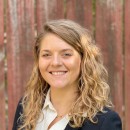 Sara Stein Successfully Defends Dissertation
Sara Stein Successfully Defends DissertationSara Stein, Joint Doctoral Program in Social Work and Psychology, has successfully defended her dissertation entitled “Towards Intentional Relational Well-Being: Syndemic Contributions of Mental Health, Trauma Exposure, and Sociodemographic Factors to Risk for Intimate Partner Violence Victimization.” Her committee consisted of Andrew Grogan-Kaylor and Sandra Graham-Bermann (chairs), Julie Ribaudo, Quyen Ngo and Todd Herrenkohl.
Sara received a two year American Heart Association Postdoctoral Fellowship to work with Alison Miller and Maria Muzik at the University of Michigan.
- July 14, 2021
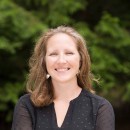 Terri Friedline’s Research on Postal Banking Featured in The Conversation
Terri Friedline’s Research on Postal Banking Featured in The ConversationAssociate Professor Terri Friedline discusses her research in The Conversation on how postal banking could provide a financial lifeline to the millions of Americans without a bank account.
According to data, 24% of U.S. census tracts have neither a community bank nor a credit union branch, leaving 21 million people "underbanked." The lack of affordable banking creates real hardships that disproportionately hurt low-income Americans and communities of color. Without a bank account, people pay higher fees and interest rates, have a harder time building credit history and are less able to get mortgages and other kinds of loans, writes Friedline.
- July 13, 2021
- Learn more »
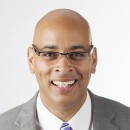 William Elliott in MarketWatch on the Importance of Assets in Addressing Wealth Inequality
William Elliott in MarketWatch on the Importance of Assets in Addressing Wealth InequalityProfessor William Elliott III spoke with MarketWatch about the role children's savings accounts can play in countering racial wealth inequality. "Education in itself will never reduce wealth inequality in America, it can be a part of it and it's really important, but if we're talking about inequality, you've got to have wealth and start off with assets," he said. "But unless the government, philanthropists and others provide a significant amount of money, the accounts won't narrow the gulf in wealth between Black and white and rich and poor households."
- July 12, 2021
- Learn more »